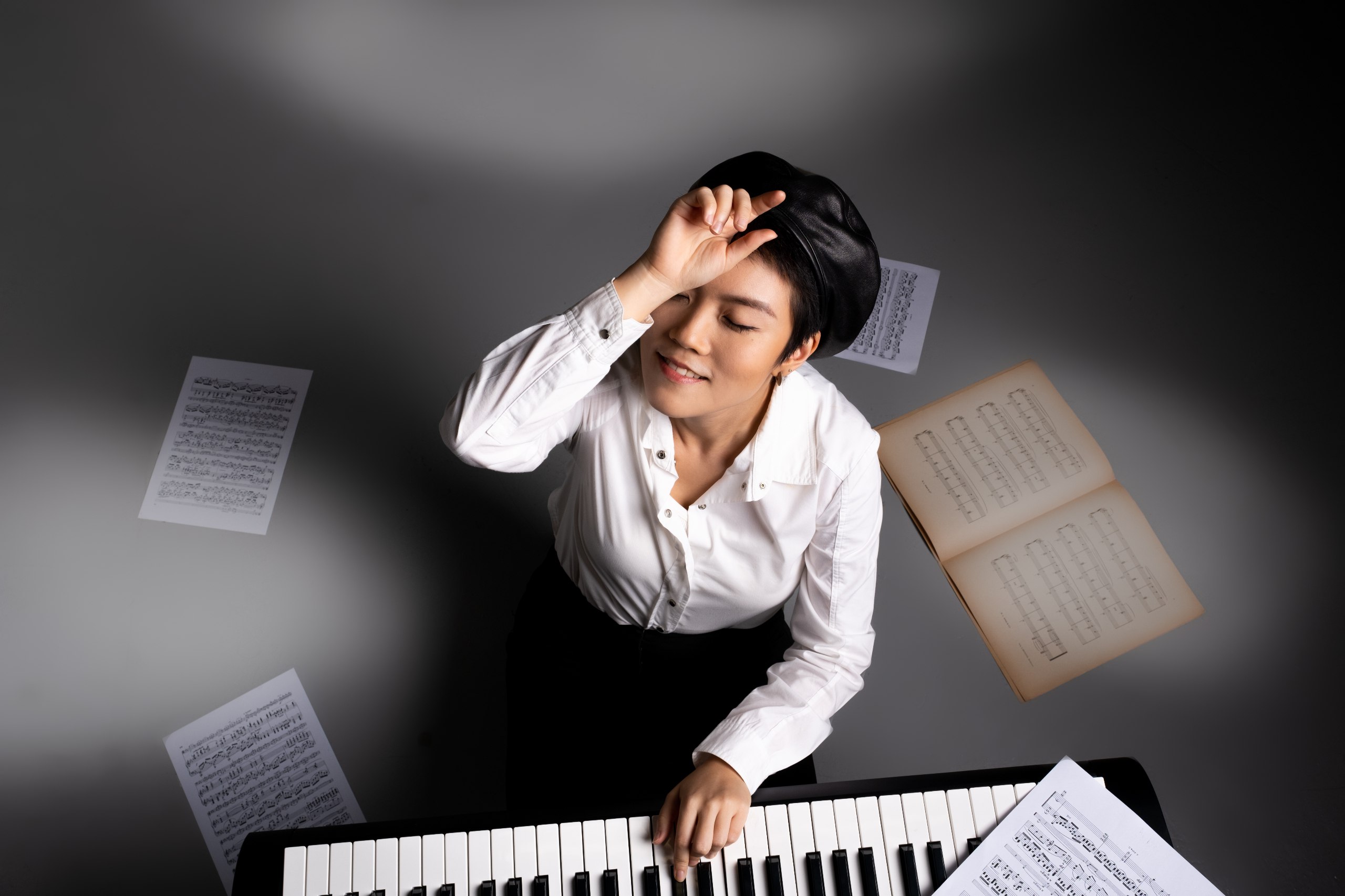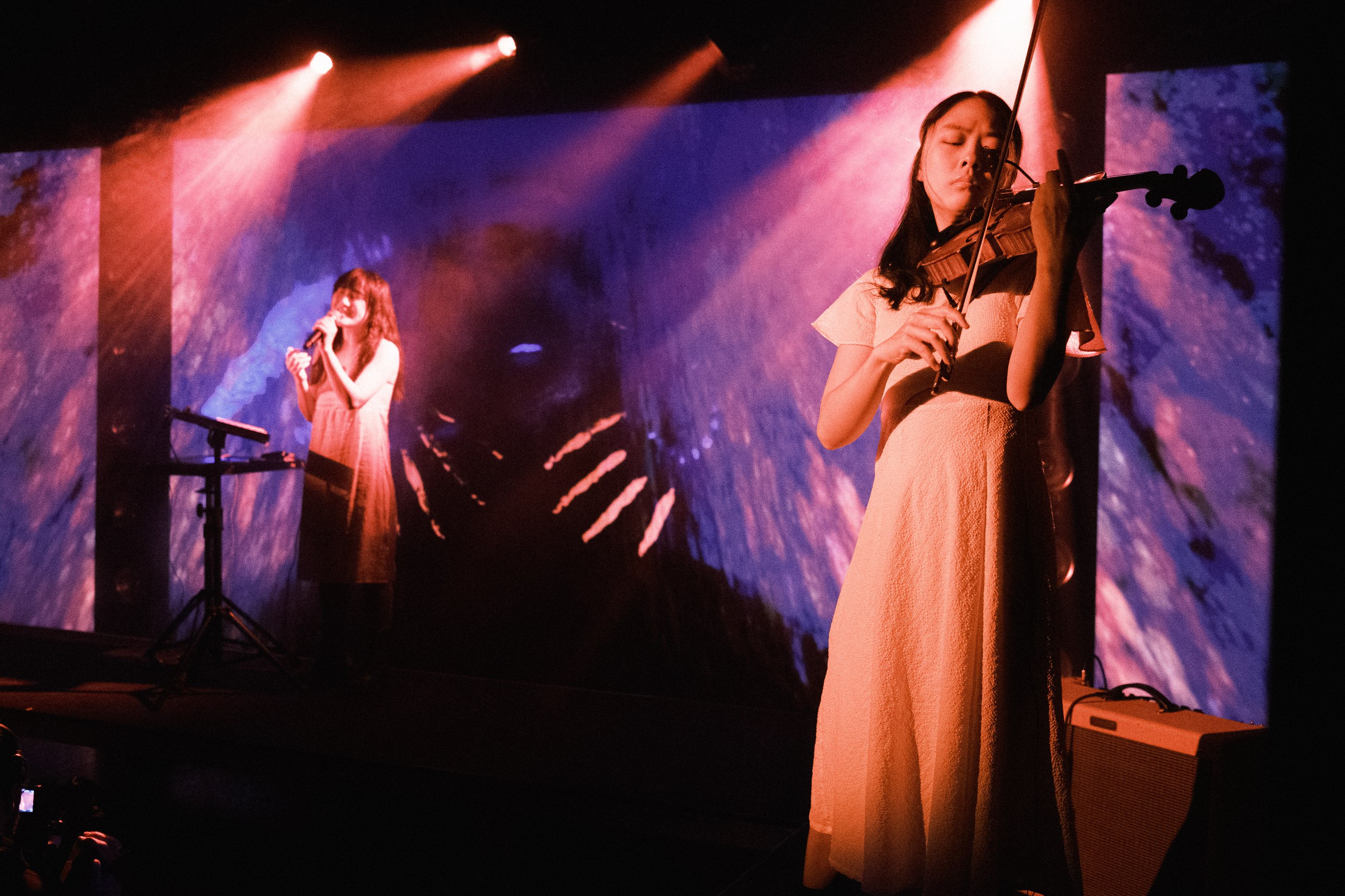It is not every day you meet a musician, who also wears the hats of a creative director, an educator and an academic. Lin Xiangning, from the Class of 2020 at Yong Siew Toh Conservatory of Music (YSTCM), has impressively taken on all these roles and mastered them. Having 17 years of experience in her craft, Xiangning’s deep and holistic understanding of music and the arts have earned her many international and local accolades over the years.
In 2022, Xiangning was recognised under Southeast Asia Directors of Music “30 Under 30”. She was also appointed as one of the three panellists at the 2022 Association for Asia Pacific Performing Arts Centres International Conference to represent the next generation of arts professionals. She is currently a Teaching Assistant at YSTCM and PhD student with the NUS History Department.
As a recipient of the last tranche of the Paul Abisheganaden Grant for Artistic Excellence, Xiangning aims to further her research and develop the art scene for future generations at the international level. With the grant, Xiangning will be attending two international research conferences this year — the European Platform for Artistic Research in Music (EPARM) in Ljubljana, Slovenia and the Princess Galyani Vadhana Institute of Music International Symposium (PGVIS) in Bangkok, Thailand. OSA caught up with Xiangning on her plans, and the journey she took to discover her artistic identity.
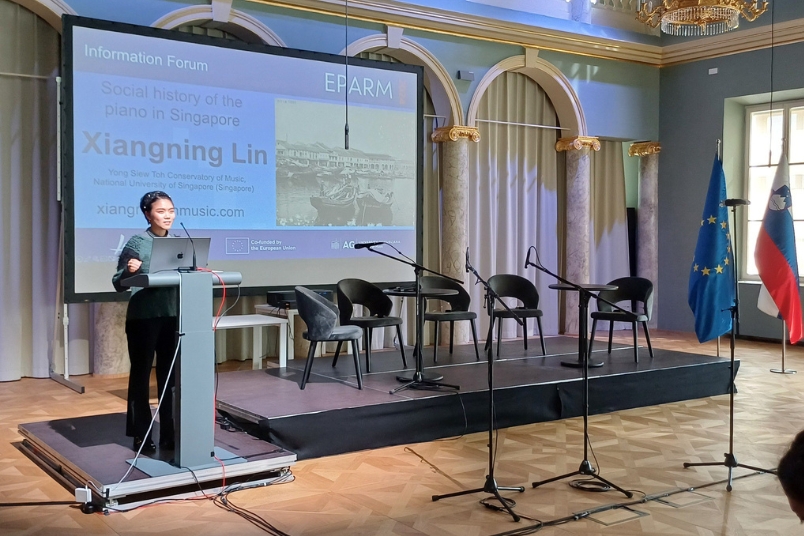
Xiangning at the European Platform for Artistic Research in Music (EPARM) 2024, in Ljubljana, Slovenia (Photo: Association Européenne des Conservatoires Office)
OSA: Congratulations on receiving the grant! How did you feel when you first received the news?
Overjoyed! It absolutely buoyed my spirits at the time of desperately juggling quite a few projects. I was filled with such effervescence— so thankful for the affirmation, and through it, to sense exciting openings awaiting. I’m thankful to my colleague and friend, Lydia Tan (Manager, Centre for Music and Health, YSTCM), for encouraging me to give this grant a go.
OSA: You are accomplished in so many fields. Is there one which you enjoy or identify with the most?
Piano is the field that I’ve received formal training in for the longest time, so it really ties together all the other creative expressions that have either grown out of, or alongside it. Each of these expressions reflect an aspect of my ‘inner multitude’ – some of them are natural curiosities, such as creative direction and research, but still require a lot of discipline. The pursuit of each expression requires a sort of obsessive devouring of information and learning, and tons of trial and error. I’ve been so lucky to have received different opportunities to cultivate and find my voice within these different forms of expression!
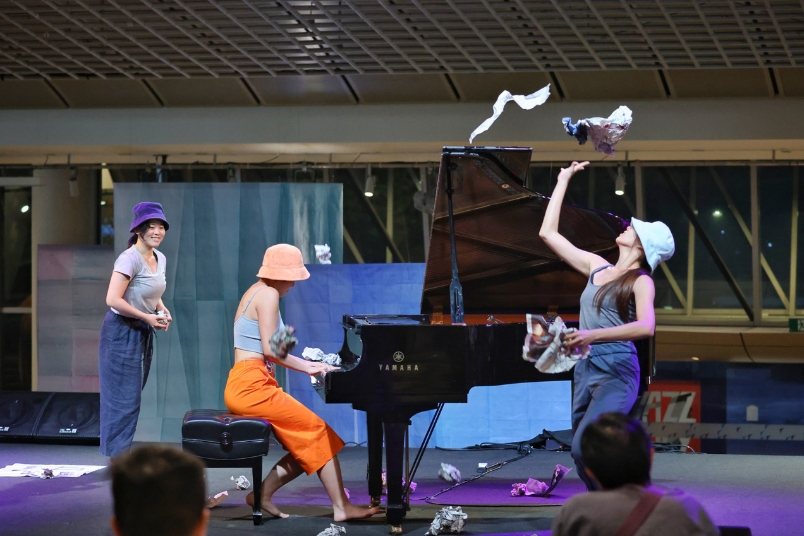
Xiangning performing the piano at her interdisciplinary performance “One Day More” at Esplanade Concourse (Photo: Wan Zhong Hao).
OSA: What do you enjoy about being a pianist and educator?
Piano is the most direct medium that I have to the act of crafting sound, which is an infinitely interesting exploration. Creative direction exercises imagination on another scale. The projects I’ve been involved in usually entail coming up with a concept, finding a narrative frame that compellingly links a given set of repertoire, and deciding if any extra-musical elements could enhance the show.
As an educator, my favourite part of classroom teaching is serving as an intermediary to connect the ideas that the class offers to a prompt. My interest in regional, social, and cultural historical research, comes from the desire to explore perspectives and interpretation of present day pieces with its broader historical backdrop in mind. In thinking about the collective heritage that the classical music community shares, we can discover hidden voices of the past to see what it reflects of the present.
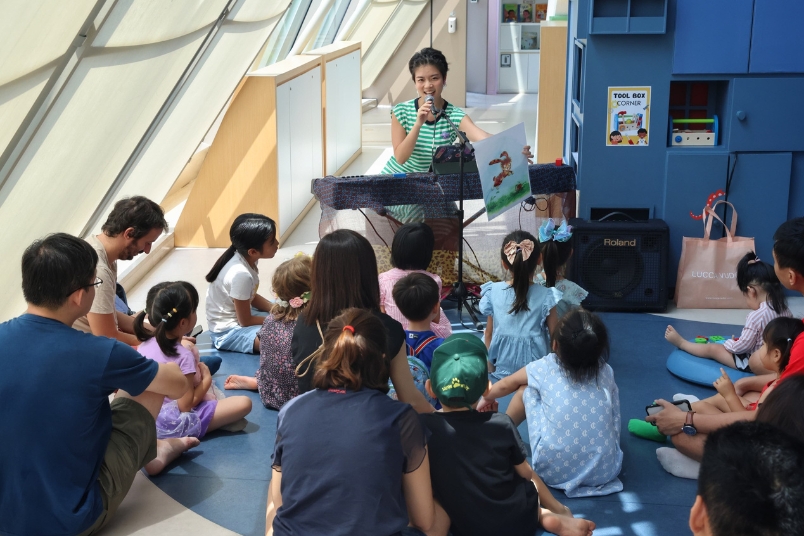
“Musical Tales of Little Known Tails”, interactive musical storytelling at Esplanade PIP’s PLAYbox (Photo: Wan Zhong Hao)
OSA: How were you introduced to music, and from what age?
My kindergarten teachers always told my parents that I wouldn’t stop bopping along whenever there was music. At some point in kindergarten, I received exposure to the piano and thought it was the most magical thing ever. I pestered my parents to send me for lessons and they finally gave in when I was eight.
OSA: What was the turning that you decided to become an artist?
I think there were many turning points, each signaling to me, “hey, you could be this kind of artist”. I quickly realised I wanted to be a pianist “when I grew up”. Being a pianist is part of me now. My eight-year-old self would have been surprised by the creative richness this pursuit has introduced, and the types of causes that I can champion and raise awareness through my artistic endeavours.
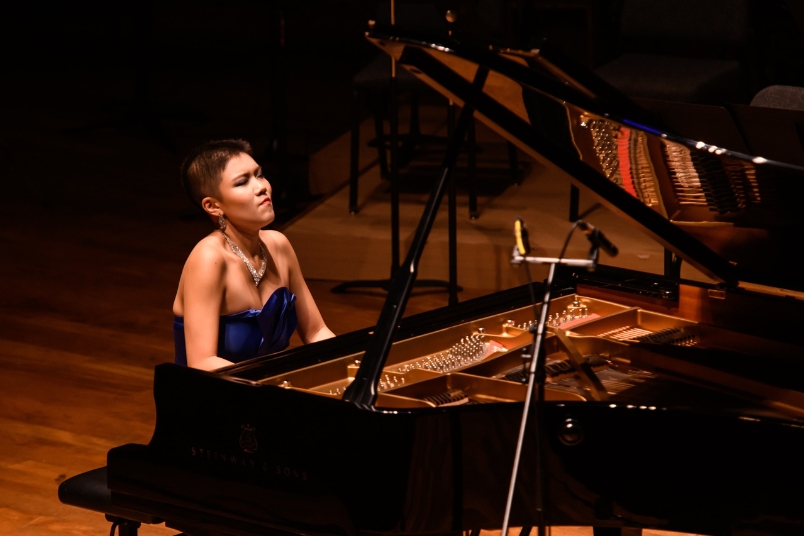
Xiangning playing the piano at the “Telling Beyond Words” concert (Photo: YSTCM)
OSA: Any word of advice for NUS’ student artists aspiring to continue pursuing the arts beyond university life?
I hope we all find a happy spot for art to exist within our lives – a way of practising it that brings us a sense of deep bliss. Some find it through professional pursuit, while others find that their passion is more sustainable when it is detached from any financial or career pressures. It definitely takes time to figure out what that happy spot lies for each one of us, and it can change overtime. There’s no right or wrong, only what’s most suitable!
Share:
Contributor
Office of Student Affairs


